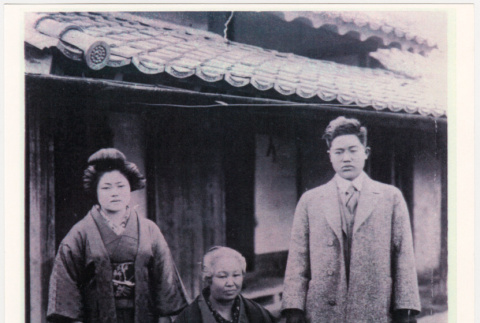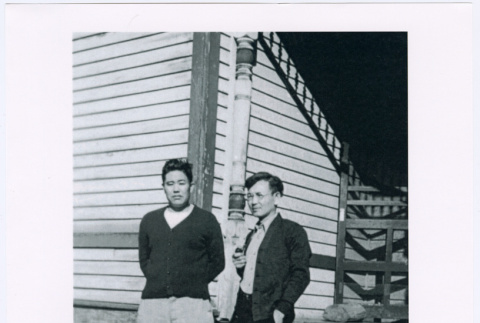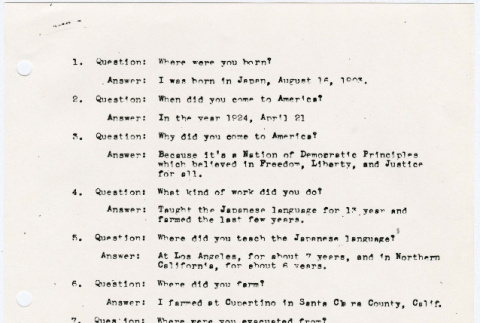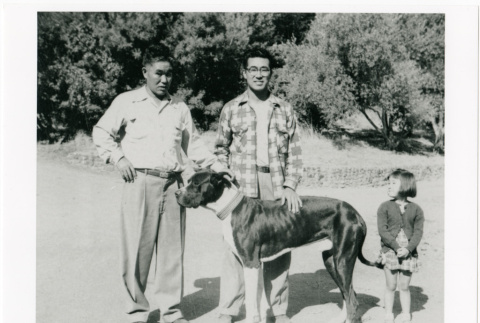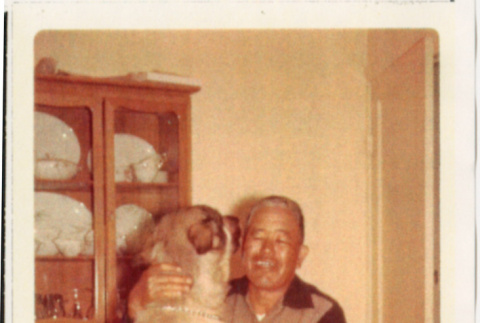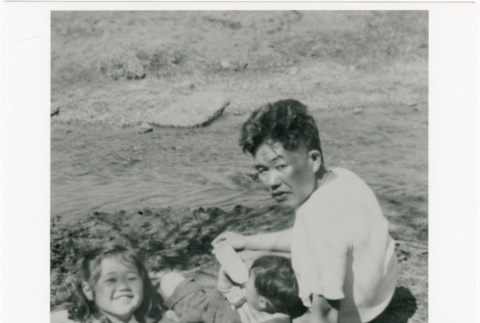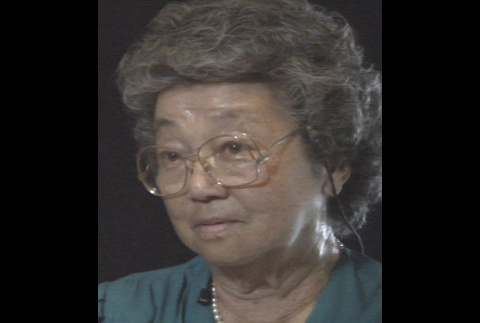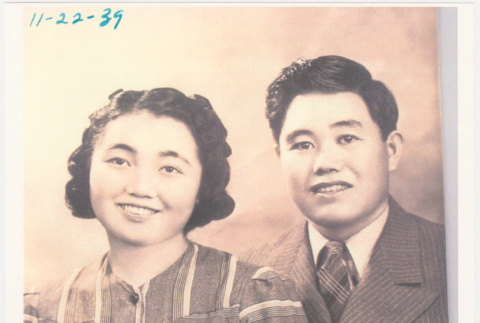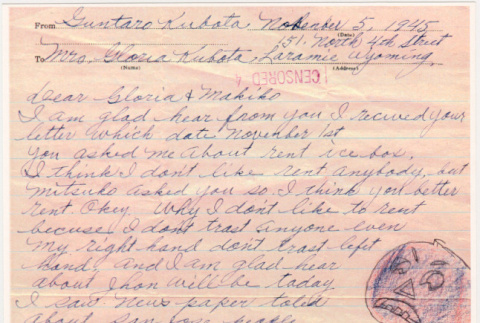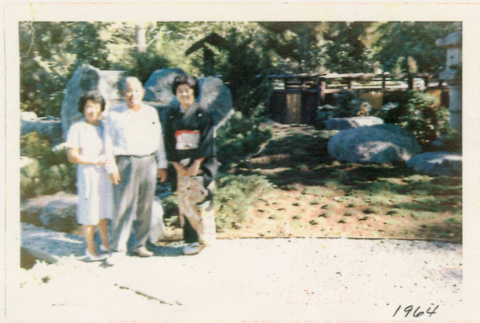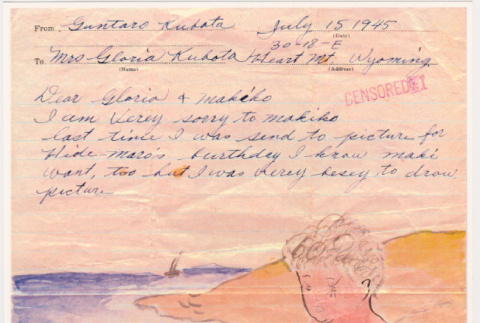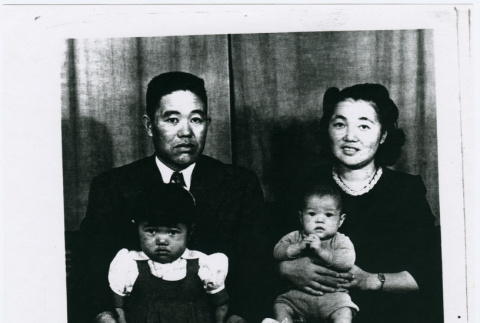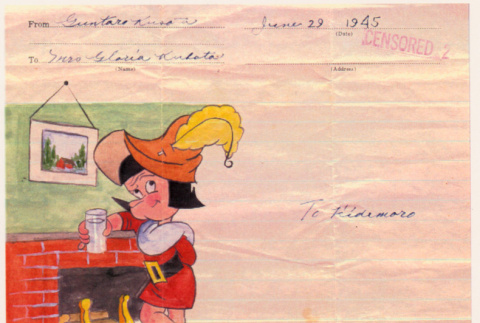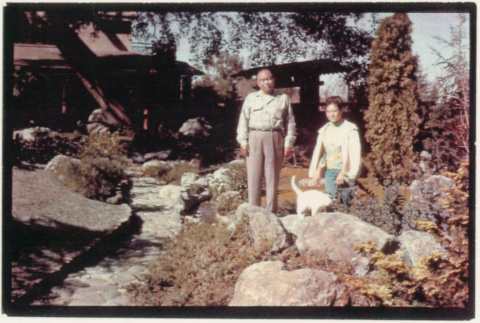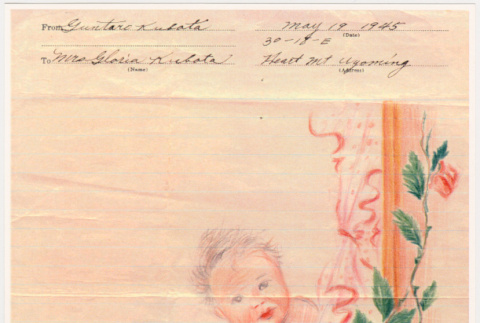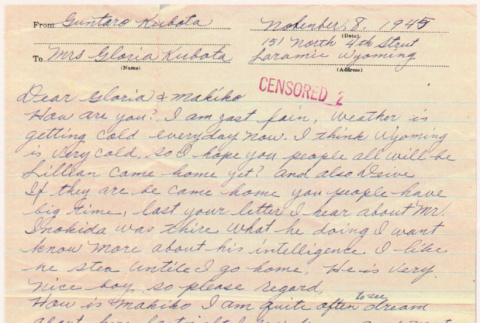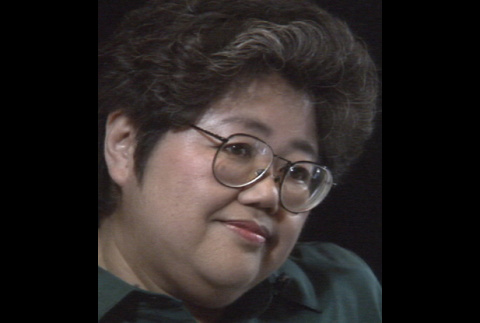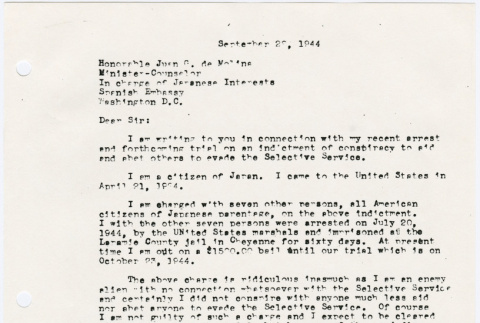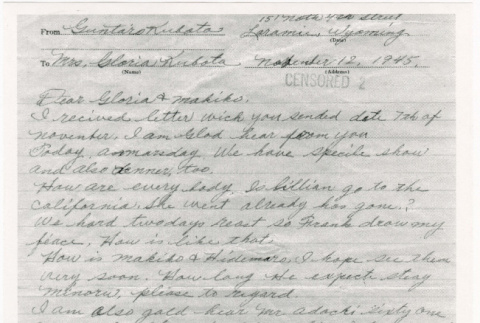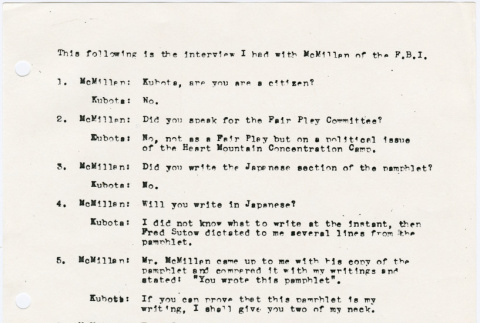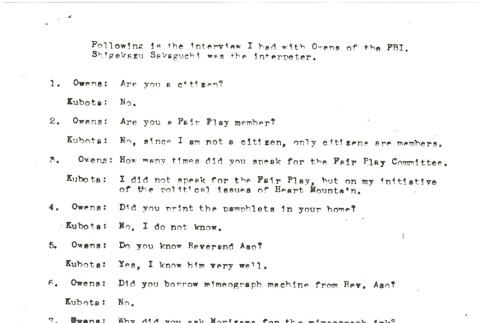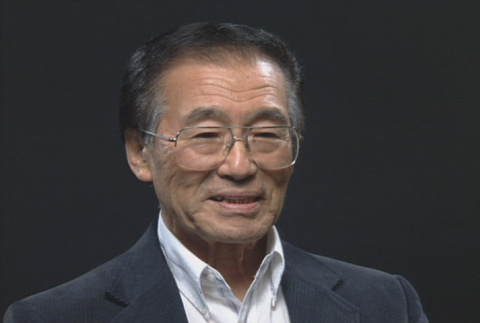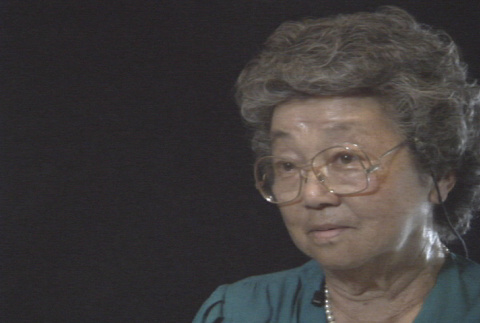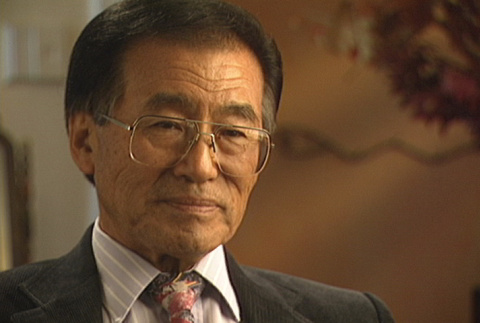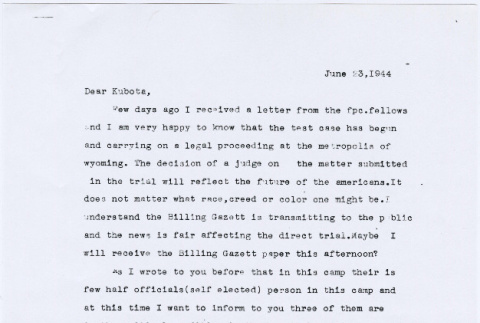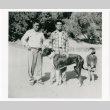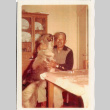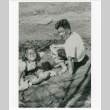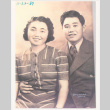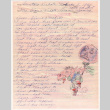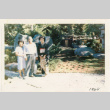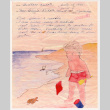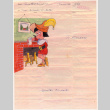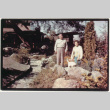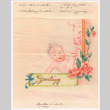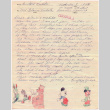26 items
- 1
- 2
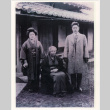
img
Guntaro Kubota with mother Saye Kubota and sister Take Kubota (ddr-densho-122-642)
Taken in Japan when Guntaro Kubota was leaving for America
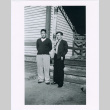
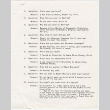
doc
Interview with Guntaro Kubota (ddr-densho-122-523)
Transcript of interview with unknown questioner

Narrator Gloria Kubota
Nisei female. Born June 6, 1916, in Santa Clara County, California. Raised in Santa Clara, and met and married Issei Guntaro Kubota, one of the leaders of the Heart Mountain Fair Play Committee. During World War II, incarcerated at Heart Mountain concentration camp, Wyoming, along with daughter. Gave birth to a son in camp. Husband Guntaro …
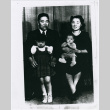

Narrator Grace Kubota Ybarra
Sansei female. Daughter of Guntaro Kubota, an Issei immigrant and one of the leaders of the Heart Mountain Fair Play Committee. Incarcerated at Heart Mountain, Wyoming, as a child, and has memories of receiving letters with cartoon drawings from her father while he was in prison.
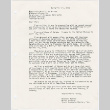
doc
Letter to Spanish ambassador from Guntaro Kubota (ddr-densho-122-519)
Requesting the ambassador act as a witness at Kubota's trial
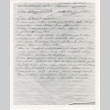
doc
Letter and drawing to Gloria Kubota from Guntaro Kubota from prison (ddr-densho-122-636)
Including sketch of Kubota's face drawn by cellmate Frank Emi
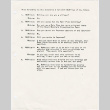
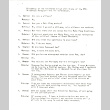

vh
Frank Emi Interview II Segment 19 (ddr-densho-122-20-19)
Passing time in prison, talking with Issei Guntaro Kubota
This interview was conducted by filmmaker Frank Abe for his 2000 documentary, Conscience and the Constitution, about the World War II resisters of conscience at the Heart Mountain incarceration camp. As a result, the interviews in this collection are typically not life histories, instead primarily focusing …
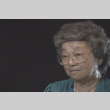
vh
Gloria Kubota Interview (ddr-densho-122-13)
Nisei female. Born June 6, 1916, in Santa Clara County, California. Raised in Santa Clara, and met and married Issei Guntaro Kubota, one of the leaders of the Heart Mountain Fair Play Committee. During World War II, incarcerated at Heart Mountain concentration camp, Wyoming, along with daughter. Gave birth to a son in camp. Husband Guntaro …
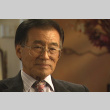
vh
Frank Emi Interview Segment 15 (ddr-densho-1002-9-15)
Description of trial: found guilty and sent to jail
This interview was conducted by sisters Emiko and Chizuko Omori for their 1999 documentary, Rabbit in the Moon, about the Japanese American resisters of conscience in the World War II incarceration camps. As a result, the interviews in this collection are typically not life histories, instead …
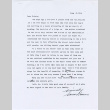
doc
Letter to Mr. Guntaro Kubota from Isamu (Sam) Horino (ddr-densho-122-465)
re: news of the Fair Play Committee hearing
- 1
- 2
